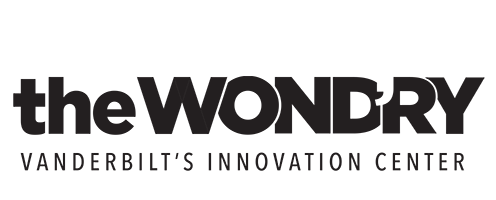Social Changemakers
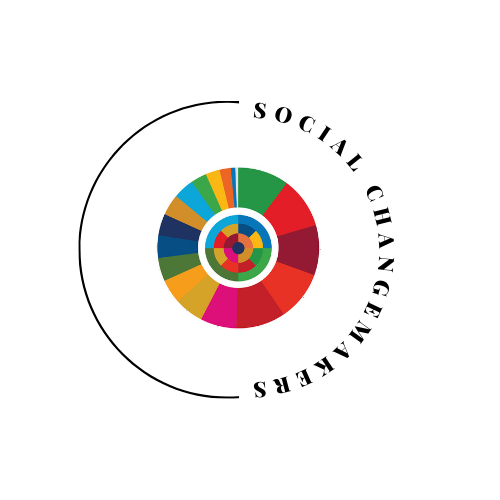
About Social Changemakers (SC)
Social Changemakers (SC) is a 12-week immersive program in which students learn and apply human-centered design to co-create new capabilities addressing a specific need of a community partner working on complex social, economic and environmental challenges. Community partners are student-driven, through either a student-led nonprofit (established for at least a year) or a pre-existing student engagement with a local nonprofit. Students work in small teams and have the opportunity to strengthen skills, from collaboration and leadership to project design and management.
Applications for 2024 are closed! For community partner inquiries, contact Jackie Hansom at jackie.hansom@vanderbilt.edu,and for all other questions, contact Dan Drogosh at dan.drogosh@vanderbilt.edu.
- Team Lead Application for students interested in leading a student team (Deadline: Jan. 14th) Applications for this are closed.
- Student Application for students to apply solo or be matched with a team; students can indicate who they already want to be paired with (Deadline: Jan. 14th) Applications for this are closed.
Spring 2024 SC Meeting Dates
SC meets every Tuesday, 4:30pm–6pm, starting January 30th, 2024, until April 23, 2024, in the 3rd Floor Lounge of the Wond’ry (Room 300).
Program Schedule:
Jan 30: Fellowship Session (TBD)
Feb 6: Session 1 (4:30-6pm)
Feb 12: Session 2 (4:30-6pm)
Feb 20: Session 3 (4:30-6pm)
Feb 27: Session 4 (4:30-6pm)
Mar 5: Session 5 (4:30-6pm)
Mar 12: Spring Break
Mar 19: Session 6 (4:30-6pm)
Mar 26: Session 7 (4:30-6pm)
Apr 2: Session 8 (4:30-6pm)
Apr 9: Session 9 (4:30-6pm)
Apr 16: Session 10 (4:30-6pm)
Apr 23: Fellowship Session (TBD)
Session Structure:
4:30 – 5:00 pm Program Content
5:00 – 5:45 pm Co-Creation (SC Teams Time)
5:45 – 6:00 pm Group Reflection and Next Steps
Additionally, SC teams schedule regular contact with community partners and each other outside of session time and complete project-supporting work. The total time commitment averages 5 hours per week.
Past SC Partners & Projects
- The Mayor’s Office: Nashville Climate Challenge
- Hands On Nashville: disaster resilience
- Fiber Optic Build Lab: sustainable fashion & the circular economy
- Civic Design Center: Nashville Youth Design Group mobility
- Project Safe/Title IX: continuation of student-led research into campus safety and response
Examples of Past Projects
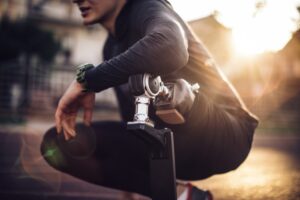
ADAPTIVE FASHION
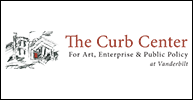
Adaptive wear for a more inclusive world is a dynamic topic in the fashion industry. Addressing the needs of people with disabilities who have difficulties getting dressed, while considering sustainability, practicality, personal style, and affordability, presents a unique challenge, which we need your help in addressing. In partnership with the Curb Center’s Art of Healing Exposition, Alex Sargent Capps, & The Wond’ry at Vanderbilt, students will collaborate to generate innovative solutions for individuals with disabilities.

WASTE DIVERSION
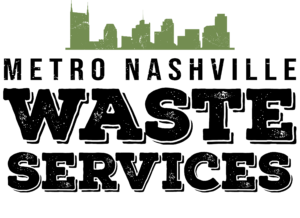
In alignment with the Zero Waste Master Plan approved by the Mayor’s office, Nashville seeks to reduce the amount of solid waste it sends to landfills by 90% over the next 30 years. This plan has identified construction and demolition as a material stream with high potential impact for diversion from landfill. Currently, the city lacks the capacity to process mixed building material for recycling, creating a challenge to diversion efforts. Lacking is an incentive for processing companies or startups to provide services in an area with low processing demand. Students will work together to consider how city officials, debris recyclers, and prospective servicers might address the processing capacity, creating demand, policies, and a profitable business model or process for mixed building material diversion.
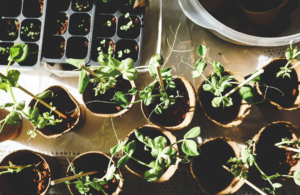
COMMUNITY GARDENS
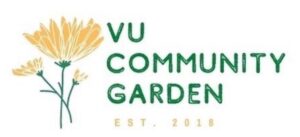 As communities seek to grow community gardens, planters face problems of effective advertising, large scale education of the participants, and produce dissemination. It is often difficult to identify enough individuals for consumption in a timely manner when more food is grown than participants harvest. As a result, more groups seek to coordinate communication and transportation to better allocate produce to the community and surplus to those facing food scarcity. In partnership with VU Community Gardens, students will consider how to tackle the issue of garden surplus in a way that addresses food inequity in Nashville.
As communities seek to grow community gardens, planters face problems of effective advertising, large scale education of the participants, and produce dissemination. It is often difficult to identify enough individuals for consumption in a timely manner when more food is grown than participants harvest. As a result, more groups seek to coordinate communication and transportation to better allocate produce to the community and surplus to those facing food scarcity. In partnership with VU Community Gardens, students will consider how to tackle the issue of garden surplus in a way that addresses food inequity in Nashville.
Additional partners
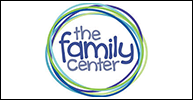 The Family Center of Tennessee offers a range of programs that help break cycles of trauma in families. During the Spring 2020 semester, the Social Venture Think Tank partnered with The Family Center to build marketing and promotion strategies for a new program offering at the center.
The Family Center of Tennessee offers a range of programs that help break cycles of trauma in families. During the Spring 2020 semester, the Social Venture Think Tank partnered with The Family Center to build marketing and promotion strategies for a new program offering at the center.
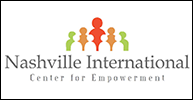 The Nashville International Center for Empowerment (NICE) ensures refugees across Middle Tennessee achieve their full potential now and for generations to come. The Social Venture Think Tank built a new website prototype, marketing suite, and promotional materials for New American Staffing, a new staffing agency founded by NICE that helps immigrants and refugees find meaningful employment opportunities.
The Nashville International Center for Empowerment (NICE) ensures refugees across Middle Tennessee achieve their full potential now and for generations to come. The Social Venture Think Tank built a new website prototype, marketing suite, and promotional materials for New American Staffing, a new staffing agency founded by NICE that helps immigrants and refugees find meaningful employment opportunities.
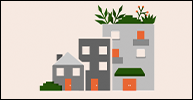 In Fall 2019 and Spring 2020, two teams of students worked to develop a social business concept for Nashville Build Upcycle. This center will keep reusable construction and demolition waste out of landfills. It will also ensure that Nashvillians have access to low-cost, high-quality construction materials. Long-term, the center will provide training, building materials, and resources that support the construction of Living Buildings, an emerging innovation in sustainable architecture.
In Fall 2019 and Spring 2020, two teams of students worked to develop a social business concept for Nashville Build Upcycle. This center will keep reusable construction and demolition waste out of landfills. It will also ensure that Nashvillians have access to low-cost, high-quality construction materials. Long-term, the center will provide training, building materials, and resources that support the construction of Living Buildings, an emerging innovation in sustainable architecture.
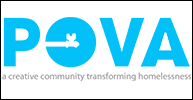 Poverty and the Arts (POVA) is a nonprofit social enterprise that is building new models of economic justice for individuals affected by homelessness. The organization provides resources for individuals to create art and then earn income from the sale of those items to the public. A team of students developed a new administrative process for the organization, helping staff to decrease the time it takes to track inventory and sales. The implementation of this project enables POVA to dedicate more time to organizational development and program implementation.
Poverty and the Arts (POVA) is a nonprofit social enterprise that is building new models of economic justice for individuals affected by homelessness. The organization provides resources for individuals to create art and then earn income from the sale of those items to the public. A team of students developed a new administrative process for the organization, helping staff to decrease the time it takes to track inventory and sales. The implementation of this project enables POVA to dedicate more time to organizational development and program implementation.
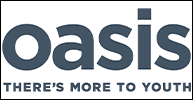 The OASIS Center is a youth advocacy organization that helps ensure Nashville youth experience a successful transition into adulthood. In Fall 2019, we worked with the OASIS Center to develop a plan for achieving more robust data analysis capabilities. This project was carried forward by Change++, a student group dedicated to using computer programming skills to support Nashville-based non-profits. The creation of a new data management process for the organization will help ensure their ability to track their impact across programs and among the Nashville youth.
The OASIS Center is a youth advocacy organization that helps ensure Nashville youth experience a successful transition into adulthood. In Fall 2019, we worked with the OASIS Center to develop a plan for achieving more robust data analysis capabilities. This project was carried forward by Change++, a student group dedicated to using computer programming skills to support Nashville-based non-profits. The creation of a new data management process for the organization will help ensure their ability to track their impact across programs and among the Nashville youth.
